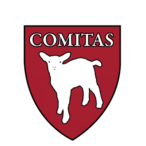The Clinic was extremely busy this Semester with many important developments in our cases and projects on behalf of animals in captivity and the wild. It was also the most populated Semester yet – with 16 Clinicians and two Research Assistants!
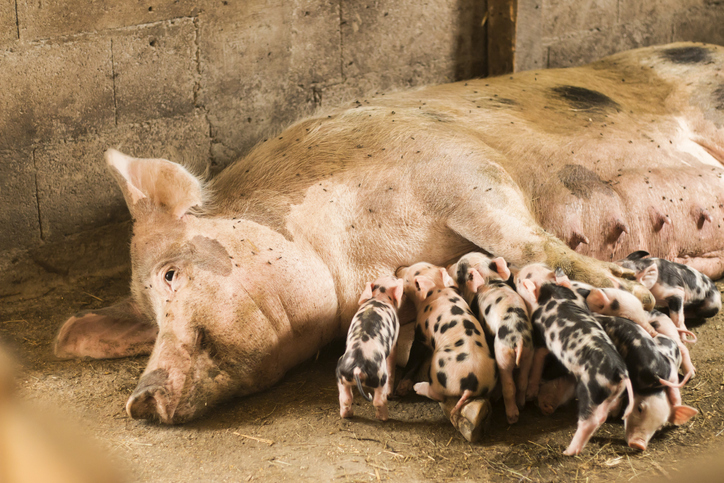
Win in the Supreme Court! On May 11, 2023, we received the very excellent news that the Supreme Court had rejected the Pork Industry’s attempt to derail Proposition 12 – a California Initiative that was overwhelmingly approved by the electorate to end the sale in California of pork and other animal products produced by keeping animals in extremely small stalls that prohibit them from even turning around and engaging in other natural behaviors. National Pork Producers Council v. Ross. In a divided opinion, the Court rejected the Pork Industry’s arguments that the Initiative violated the Dormant Commerce Clause of the Constitution. The Clinic submitted an amicus brief in the case on behalf of a coalition of animal protection groups. In addition to arguing the constitutional law principles at issue in the case, the amicus brief explained to the Court the natural behaviors of pigs and how these confinement practices cause the animals great pain and suffering. Acknowledging that the Initiative serves legitimate “moral and health interests,” the Court refused to strike down the Initiative. The amicus brief was prepared by Fellow Rebecca Garverman and Clinician Ashton MacFarlane (JD ’23).
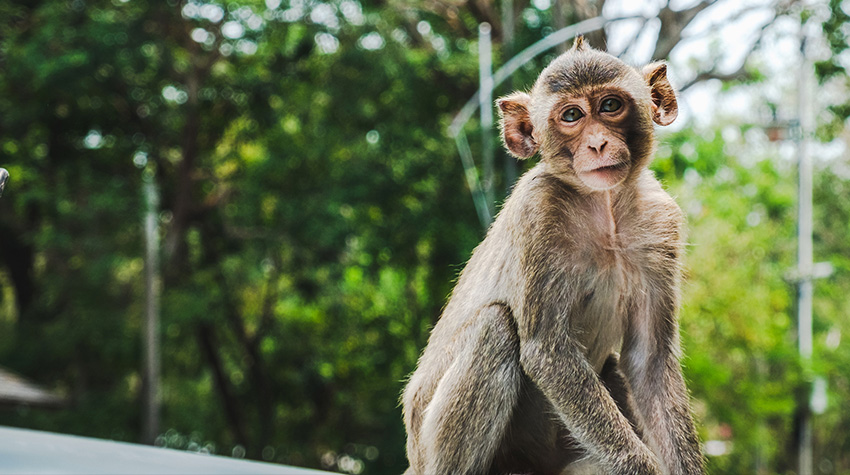
Victory in our Primate Case. We also received a grand slam home run in our primate psychological well-being case. On March 23, 2023, Judge Julie R. Rubin of the federal district court in Maryland granted summary judgment to our plaintiffs, Rise for Animals and the Animal Legal Defense Fund, in their case challenging a decision by the U.S. Department of Agriculture (USDA) to deny a petition to greatly improve the psychological well-being of primates used in research. The Court not only found that we had established sufficient Article III standing, but that we were also correct on the merits–i.e., the USDA unlawfully refused to improve the relevant standard. Indeed, Judge Rubin held that the USDA “based its denial on facts known by it to be false,” and separately chastised the agency for its “failure to address even one comment (or category of comment) [of the 10,000 comments submitted in support of the Petition] in its denial.” In the course of her opinion, Judge Rubin also expressed concern about the USDA’s new policy under which it no longer conducts full annual inspections of all research facilities—a sentiment that bodes well for our separate challenge to that policy which is also before Judge Rubin (see below), writing that “the court rejects the notion that substituting a severely abridged version of proper, full annual inspections is consistent with AWA’s expression of congressional intent to protect the welfare of animals in research settings.”
Opening Brief filed in our USDA Inspection Policy case. In a related case challenging the USDA’s secret inspection policy, whereby it no longer conducts full inspections of research facilities to ensure that they are in compliance with all applicable Animal Welfare Act (AWA) standards, the Clinic filed its opening summary judgment brief. The brief, drafted by Clinicians Max Hantel (JD ’23), Benson Beidler (JD ’24), and Dana Horowitz (J.D. ’22), demonstrates that the Plaintiffs (Rise for Animals and ALDF) have standing and that the new secret policy violates the plain language of the AWA. As discussed above, Judge Rubin has already indicated her view that the USDA’s secret policy violates the AWA.
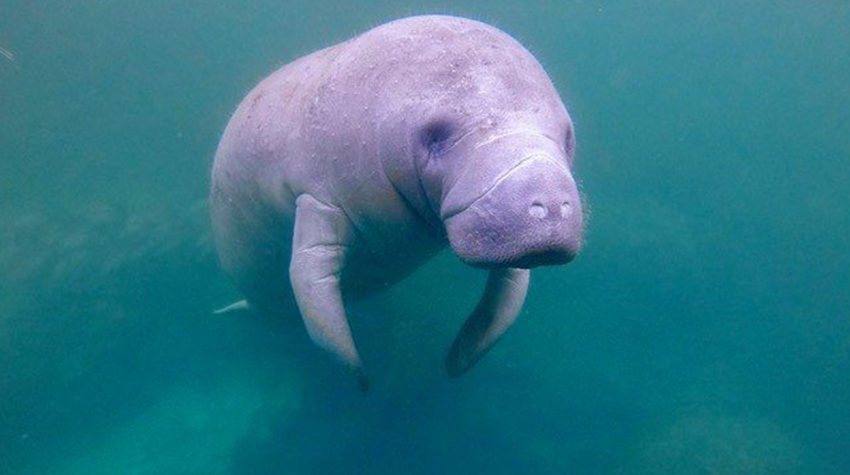
Notice of Intent to Sue over Delay on Manatee Petition. In our continuing effort to save the Florida manatee from extinction, on May 2, 2023, we sent a 60-day notice letter to the U.S. Fish and Wildlife Service (FWS) for failing to meet its duty under the Endangered Species Act (ESA) to determine whether the Clinic’s November 21, 2022, Petition to Reclassify the Manatee from “threatened” to “endangered” is “warranted” under the ESA—the first step to changing the listing status of the species. The notice letter, which is a requisite prelude to suing the agency under the ESA, was sent on behalf of the Clinic, the Center for Biological Diversity, the Miami Waterkeeper, Save the Manatee, and an individual activist. Graduating student Ben Rankin took the lead on this, with help from Savannah Bergeron (JD ‘24).
USDA Public Contact Comments. In April, we submitted comprehensive comments to the USDA in response to an advance notice of proposed rulemaking related to public contact with wild and exotic animals and enrichment for all species. The comments advanced arguments under the AWA and ESA and urged the USDA to ban public contact with captive wild animals, impose heightened training requirements for all personnel that handle wild and exotic animals, and require enrichment for all regulated species. Elizabeth Duncan (JD ’23), Andrew Slottje (JD ’23), and Hallie Aylesworth (JD’24) prepared the submission.
Complaints filed against octopus petting zoo. On behalf of Hawaii-based clients For the Fishes, Pono Advocacy, and Moku o Keawe cultural practitioner Mike Nakachi, the Clinic filed complaints with Hawaii’s Department of Land and Natural Resources (DLNR) and the Natural Energy Laboratory of Hawaii Authority (NELHA) requesting investigations into Kanaloa Octopus Farm, a petting zoo that uses dozens of wild-caught octopuses for tourist interactions and captive breeding experiments. Using public records and social media, our investigation revealed that the Farm routinely possesses undersize octopus and has likely unlawfully acquired animals. The letters argue that the DLNR and NELHA must fulfill their duties under Hawaii’s Constitution to prevent unjustifiable harm to public trust resources (including octopuses and their ecological niche), and to protect Native Hawaiian cultural beliefs and practices. Noam Weiss (LL.M. ’23) and Ricardo Diaz Alarcon (LL.M. ’23) led the investigation and drafting.
Advocacy to end Harvard’s experiments on macaques. In February, the Clinic and the Wild Minds Lab at the University of St. Andrews School of Psychology and Neuroscience in the UK sent a letter to the National Institutes of Health (NIH) urging it to review and terminate its ongoing funding of cruel experiments on non-human primates at Harvard Medical School and elsewhere. More than 380 scientists, doctors, and academics from around the world joined the request to NIH—including renowned primatologists Dr. Jane Goodall, Dr. Ian Redmond, and Harvard’s Dr. Richard Wrangham. Clinical fellow Rebecca Garverman prepared the letter alongside graduate research student Gal Badihi and Dr. Catherine Hobaiter of the Wild Minds Lab.
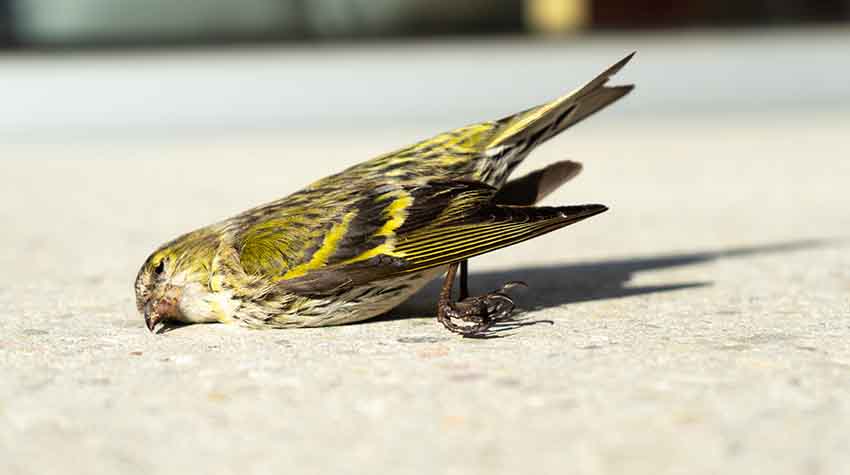
Bird-Safe Windows Project On June 14, 2023, we submitted a lengthy petition to Harvard University’s Office of Sustainability urging it to adopt a policy that would require the use of bird-safe windows in the construction of all new buildings on campus. Over a billion birds are killed every year in North America by colliding with windows – the second greatest cause of bird mortality next to cat predation. The submission also requested Harvard to monitor existing buildings to identify the most problematic ones for bird collisions, with an eye toward retrofitting those buildings with bird-safe glass as well. As the submission explained, other Universities, such as Yale, Cornell, Princeton, and the University of Pennsylvania, have already institute a program to use bird-safe glass on new buildings. The proposal is particularly important because Harvard is located directly on the Atlantic Flyway that birds use for migration each year.
The submission was made on behalf of the Clinic, the American Bird Conservancy, Dr. Scott V. Edwards, Alexander Agassiz Professor of Zoology and Curator of Ornithology in the Museum of Comparative Zoology at Harvard University; Nina-Marie Lister, Visiting Professor of Landscape Architecture at Harvard University’s Graduate School of Design, and Jeremiah Scanlon, a former student in the Clinic who proposed the project as his final writing assignment! The submission was drafted by Research Assistant, Allyson Garbardella (JD ’24), with the assistance of Rachel Landry (JD ’23).
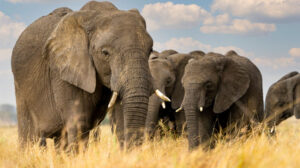
African Elephant comments. In March, the Clinic joined the Performing Animal Welfare Society (PAWS) to submit comments on a proposal by the FWS to revise a special rule governing trade in African elephants under the ESA. Although the rule would strengthen protections for these animals, it would still allow imports of elephants captured for zoos and killed by trophy hunters. Our comments argue that capturing elephants for captive display and killing them for sport are antithetical to the conservation of the species and legally indefensible under the ESA. The comments were authored by PAWS Director of Science, Research, and Advocacy Catherine Doyle, Clinical Instructor Rachel Mathews, Clinical Fellow Rebecca Garverman, and clinic student Jeremiah Scanlan (JD ’24).
Using FOIA to obtain important information about the Florida Panther. Clinician (and Florida native) Savannah Bergeron also took the lead on filing open records requests with both the FWS and the Florida Fish and Wildlife Conservation Commission to obtain information on whether the FWS is planning to delist the Florida panther—i.e. take it off the list of endangered species – on the ground that it is not a true separate species as distinguished from other cougar species that still exist in the southeastern part of the country. As a result, Savannah received valuable information regarding the taxonomy of the panther, and the agency’s potential plans to try to delist it. All of this information will be extremely valuable to continued efforts to keep the panther listed as “endangered,” with all of the attendant protections to which it is entitled under the ESA.
Tule Elk Appeal. On February 27, 2023, Judge Haywood S. Gilliam, federal district judge for the Northern District of California, ruled against us in our Tule Elk litigation. He held that the National Park Service’s organic statute, which provides that the Park Service “shall revise” all General Management Plans for national park units, including the Point Reyes National Seashore, in a “timely manner” does not impose a mandatory duty on the Park Service that can be enforced by the Court. Because Judge Gilliam’s ruling is at odds with a ruling of another judge on the same Court, as well as much of the pertinent caselaw defining what constitutes a mandatory duty that may be enforced under the Administrative Procedure Act, we have now appealed that decision on behalf of several California activists and the Animal Legal Defense Fund. Our Fellow, Rebecca Garverman, is taking the lead in drafting the appellate brief, which is due at the end of July 2023. In the meantime, the Park Service has now announced plans to consider actually removing the fence at the southern border of Tomales Point, which would allow the elk to disperse to other areas of the Seashore for much needed forage and water.
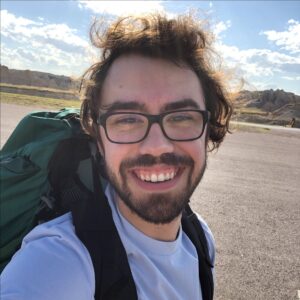
We continued to work on many more projects this Semester on behalf of animals used in research, animals used for “entertainment,” animals hunted for “game” and “recreation,” and farmed animals — but because these projects are not yet public, we cannot yet discuss them here in any detail. However, stay tuned for many more developments on Clinic Projects!
Finally, we are overjoyed that one of our Clinicians, Ben Rankin (JD ‘23) was awarded the prestigious Clinical Legal Education Association award for 2023 – an award presented annually to students from each law school for outstanding clinical work! This is the first of what we hope will be many CLEA awards presented to clinicians of the Animal Law & Policy Clinic.
As always, we could not have done this amazing work without the enthusiasm and support of our entire team at both the Clinic and the Animal Law & Policy Program: Professor Kristen Stilt, Chris Green, Sarah Pickering, Nirva Patel, Marina Apostle, Ceallaigh Reddy, and our two Research Assistants, Allyson Gambardella and Ashton MacFarlane. Once again, the Clinic has excelled in its many and varied efforts to be a voice for animals! Thank you all!
Katherine Meyer, Clinic Director
Rachel Mathews, Clinical Instructor
